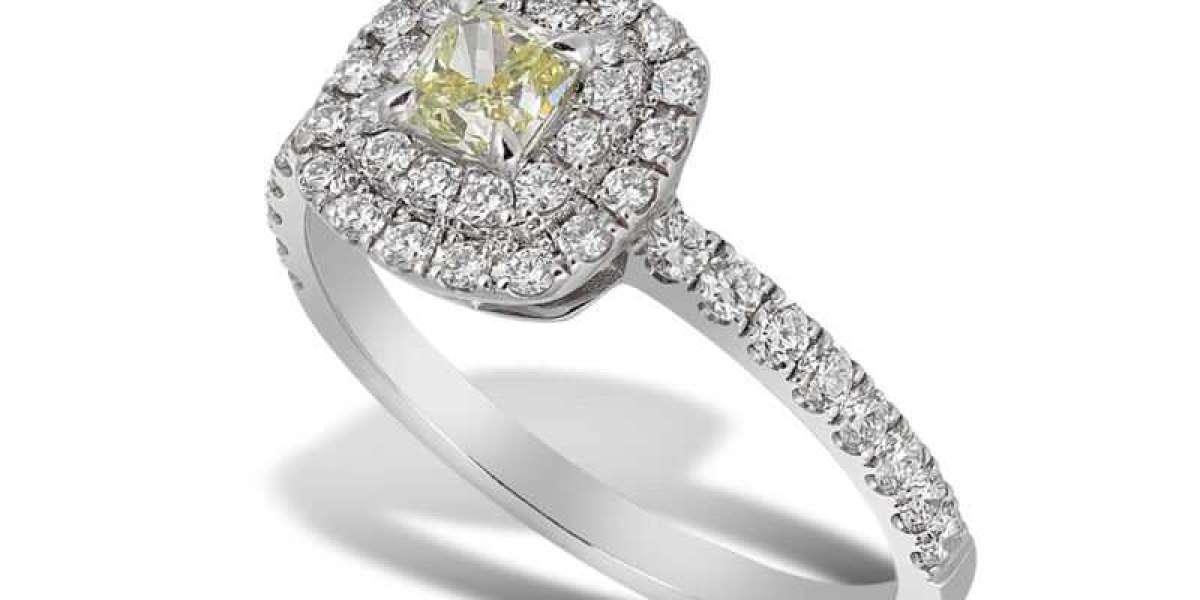In the tapestry of love, the diamond engagement ring weaves a story of eternal commitment, capturing the essence of a promise that transcends time. This symbol of devotion, resplendent with the allure of a diamond, is more than a piece of jewelry; it's a testament to the enduring nature of love. In this comprehensive guide, we embark on a journey through the intricate world of Diamond Engagement Rings, exploring their rich history, the artistry behind their creation, and the factors that make each ring a unique and cherished expression of love.
The Timeless Tradition of Diamond Engagement Rings
The tradition of exchanging engagement rings is a thread that runs through the fabric of human history, with its roots reaching back to ancient civilizations. The ancient Egyptians are credited with the concept of using rings as symbols of eternal love, and this practice gained broader recognition in Europe during the 15th century. The circular shape of the ring, representing an unbroken, eternal bond, became synonymous with the enduring commitment of marriage.
Anatomy of a Diamond Engagement Ring
Understanding the anatomy of a diamond engagement ring is key to appreciating its beauty and significance. Each ring is a harmonious blend of the center stone, the setting, and the band.
The Center Stone: At the heart of every diamond engagement ring lies the center stone – the radiant diamond. Diamonds are evaluated based on the Four Cs: Carat, Cut, Color, and Clarity.
- Carat: The weight of the diamond. Larger carat weights are often associated with greater value.
- Cut: The precision and artistry with which the diamond is cut significantly impact its brilliance. A well-cut diamond sparkles with unmatched radiance.
- Color: Diamonds come in various hues. The most prized diamonds are those without any visible color, graded as colorless.
- Clarity: This refers to the presence of imperfections or 'inclusions' in the diamond. The fewer the inclusions, the higher the clarity grade.
The Setting: The setting of a diamond engagement ring plays a pivotal role in enhancing the overall aesthetic. Common settings include prong, bezel, pave, and channel settings, each offering a distinct look and feel.
- Prong Setting: This classic setting uses metal claws to secure the diamond, allowing maximum light exposure for optimal brilliance.
- Bezel Setting: A sleek metal rim surrounds the diamond, offering both security and a modern, minimalist look.
- Pave Setting: Tiny diamonds are set closely together, creating a dazzling, continuous surface of sparkle.
- Channel Setting: Diamonds are placed in a channel between two metal strips, offering a sophisticated and secure arrangement.
The Band: The band, or the ring's shank, completes the structural integrity of the diamond engagement ring. It serves as a canvas for personalization, with choices ranging from the metal type to intricate designs and engravings.

Choosing the Perfect Diamond Engagement Ring
Selecting the ideal diamond engagement ring involves a thoughtful consideration of personal preferences and budget. While traditional solitaire rings remain a timeless choice, contemporary trends offer a spectrum of options, from vintage-inspired designs to unique shapes and colorful gemstone accents.
Classic Solitaire: The classic solitaire setting, featuring a single, prominent diamond, exudes timeless elegance. This style accentuates the purity and brilliance of the diamond without distraction.
Halo Setting: A halo setting encircles the center diamond with smaller stones, enhancing its visual impact. This design not only adds sparkle but can also create the illusion of a larger center stone.
Three-Stone Rings: Symbolizing the past, present, and future, three-stone engagement rings feature a trio of diamonds. This design choice is rich in symbolism, representing the journey of love over time.
Colored Gemstones: While diamonds are the traditional choice, colored gemstones have surged in popularity. Sapphires, emeralds, and rubies add a vibrant, personal touch to the engagement ring, making a bold statement of individuality.
The Emotional Investment
Beyond the intrinsic value and beauty, a diamond engagement ring carries profound emotional weight. It encapsulates the promise of a shared future, the commitment to weather life's storms together, and the celebration of enduring love.
In conclusion, a diamond engagement ring is not just a piece of jewelry; it is a timeless symbol of commitment, a tangible expression of love's enduring flame. As you embark on the journey of choosing the perfect ring, may it become a cherished heirloom, a reflection of the unique love story it represents – a story that unfolds with each passing day, shining as brightly as the diamonds that adorn it.
Source : Bridal Bliss: A Comprehensive Look at Diamond Engagement Rings








